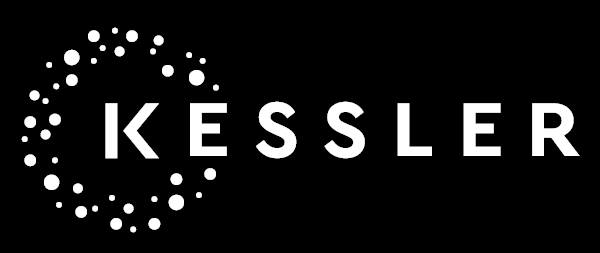Kessler is a Python package for simulation-based inference and machine learning for space collision avoidance and assessment. It is named in honor of NASA scientist Donald J. Kessler known for his studies regarding space debris and proposing the Kessler syndrome.
Developed by the FDL Europe Constellations team in collaboration with European Space Operations Centre (ESOC) of the European Space Agency (ESA).
To get started, follow the Jupyter notebooks in the notebooks folder.
The upcoming version of Kessler will inclue the probabilistic programming model of conjunctions, which is excluded from this initial release.
- Giacomo Acciarini, University of Surrey
- Francesco Pinto, University of Oxford
- Francesca Letizia, European Space Agency
- Chris Bridges, University of Surrey
- Atılım Güneş Baydin, University of Oxford
Kessler was initially developed by the Constellations team at the Frontier Development Lab (FDL) Europe 2020, a public–private partnership between the European Space Agency (ESA), Trillium Technologies, and University of Oxford.
Constellations team members: Giacomo Acciarini, Francesco Pinto, Sascha Metz, Sarah Boufelja, Sylvester Kaczmarek, Klaus Merz, José A. Martinez-Heras, Francesca Letizia, Christopher Bridges, Atılım Güneş Baydin
Kessler is distributed under the GNU General Public License version 3. Get in touch with the authors for other licensing options.
If you would like to learn more about or cite the techniques Kessler uses, please see the following papers:
- Giacomo Acciarini, Nicola Baresi, Christopher Bridges, Leonard Felicetti, Stephen Hobbs, Atılım Güneş Baydin. 2023. “Observation Strategies and Megaconstellations Impact on Current LEO Population.” In 2nd NEO and Debris Detection Conference.
@inproceedings{acciarini-2023-observation,
title = {Observation Strategies and Megaconstellations Impact on Current LEO Population},
author = {Acciarini, Giacomo and Baresi, Nicola and Bridges, Christopher and Felicetti, Leonard and Hobbs, Stephen and Baydin, Atılım Güneş},
booktitle = {2nd NEO and Debris Detection Conference},
year = {2023}
}
- Giacomo Acciarini, Francesco Pinto, Francesca Letizia, José A. Martinez-Heras, Klaus Merz, Christopher Bridges, and Atılım Güneş Baydin. 2021. “Kessler: a Machine Learning Library for Spacecraft Collision Avoidance.” In 8th European Conference on Space Debris.
@inproceedings{acciarini-2020-kessler,
title = {Kessler: a Machine Learning Library for Spacecraft Collision Avoidance},
author = {Acciarini, Giacomo and Pinto, Francesco and Letizia, Francesca and Martinez-Heras, José A. and Merz, Klaus and Bridges, Christopher and Baydin, Atılım Güneş},
booktitle = {8th European Conference on Space Debris},
year = {2021}
}
- Francesco Pinto, Giacomo Acciarini, Sascha Metz, Sarah Boufelja, Sylvester Kaczmarek, Klaus Merz, José A. Martinez-Heras, Francesca Letizia, Christopher Bridges, and Atılım Güneş Baydin. 2020. “Towards Automated Satellite Conjunction Management with Bayesian Deep Learning.” In AI for Earth Sciences Workshop at NeurIPS 2020, Vancouver, Canada. arXiv:2012.12450
@inproceedings{pinto-2020-automated,
title = {Towards Automated Satellite Conjunction Management with Bayesian Deep Learning},
author = {Pinto, Francesco and Acciarini, Giacomo and Metz, Sascha and Boufelja, Sarah and Kaczmarek, Sylvester and Merz, Klaus and Martinez-Heras, José A. and Letizia, Francesca and Bridges, Christopher and Baydin, Atılım Güneş},
booktitle = {AI for Earth Sciences Workshop at NeurIPS 2020, Vancouver, Canada},
year = {2020}
}
- Giacomo Acciarini, Francesco Pinto, Sascha Metz, Sarah Boufelja, Sylvester Kaczmarek, Klaus Merz, José A. Martinez-Heras, Francesca Letizia, Christopher Bridges, and Atılım Güneş Baydin. 2020. “Spacecraft Collision Risk Assessment with Probabilistic Programming.” In Third Workshop on Machine Learning and the Physical Sciences (NeurIPS 2020), Vancouver, Canada. arXiv:2012.10260
@inproceedings{acciarini-2020-spacecraft,
title = {Spacecraft Collision Risk Assessment with Probabilistic Programming},
author = {Acciarini, Giacomo and Pinto, Francesco and Metz, Sascha and Boufelja, Sarah and Kaczmarek, Sylvester and Merz, Klaus and Martinez-Heras, José A. and Letizia, Francesca and Bridges, Christopher and Baydin, Atılım Güneş},
booktitle = {Third Workshop on Machine Learning and the Physical Sciences (NeurIPS 2020), Vancouver, Canada},
year = {2020}
}
- Python 3.6, 3.7 or 3.8.
Note: Python 3.9 is currently not supported due to one of our dependencies (pykep) not supporting it. You might get things working with Python 3.9 if you install pykep using conda (not tested).
To install kessler, do the following:
git clone https://github.com/kesslerlib/kessler.git
cd kessler
pip install -e .
In the root folder of this repository, run:
docker build -t kessler .
If you're using Linux:
docker run --rm -it -v $PWD:/workspace --net=host kessler jupyter notebook --allow-root
If you're using MacOS:
docker run --rm -it -v $PWD:/workspace -p 8888:8888 kessler jupyter notebook --ip 0.0.0.0 --no-browser --allow-root
